Salvador Dali was a Spanish painter and writer belonging to the group of the European artistic avant-garde, surrealism.
He became known for his works with oneiric influences and he himself defined his creative process as "critical-paranoid"
Eccentric, singular and exhibitionist figure, Dalí had a unique style being bold, avant-garde and liberating. As an example, we can cite their garments which were extravagant and had vibrant colors.
Although he is best known for his plastic works, Dalí was a multifaceted artist. He has participated in works in the fields of cinema, literature, sculpture, illustration and photography.
Biography

Salvador Domingo Felipe Jacinto Dali i Domènech was born on May 11, 1904 in the city of Figueres, Catalonia, Spain.
With a strong maternal connection, he was very artistically encouraged by his mother, Felipa Domenech Ferrés. So he started painting at the age of 13.
His father, Salvador Dalí i Cusí, organized his first family exhibition with his charcoal drawings. His first public exhibition was held in the city where he was born, at the “Teatro Municipal de Figueres”, in 1919.
In 1921, his mother died of breast cancer. Dalí studied at the “Federal School of Drawing”, at the “Academia de Artes de San Fernando” in Madrid, where he was expelled in 1926, as he refused to take the tests in the Theory of Fine Arts subject.
He was married to Elena Dimitrievna Diakonova, known by the name Gala Éluard, Russian and ex-wife of the poet Paul Éluard. She was often referred to by Dalí himself as his “great inspirational muse”.
After Gala's death in 1982, Dalí becomes an unhappy man. He died in his hometown of Figueres on January 23, 1989, aged 84, a victim of heart failure.
Salvador Dalí and Surrealism
Often called the "Master the Surrealist Art”, Salvador Dalí even stated that his paintings were "hand-painted dream photographs”.
Thus, it was considered one of the great icons of surrealist vanguard. However, it caused controversy, being expelled by the leader and founder of the André Breton movement, for reasons of different interests and political tendencies.
He even said that: “The difference between the surrealists and me is that I'm actually a surrealist".
Main Works
Salvador Dalí is considered one of the great artists of the 20th century and his plastic works are full of oneiric and bizarre images. stand out
The Endless Enigma (1928)
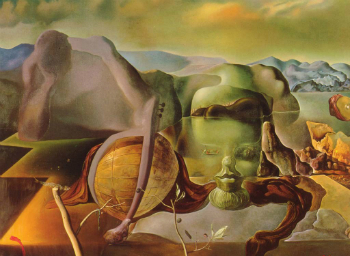
The great masturbator (1929)

The two branches (1929)

The Persistence of Memory (1931)
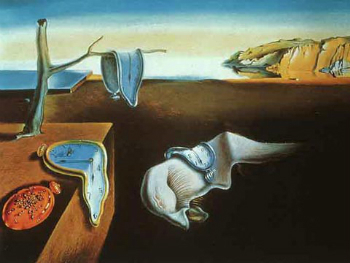
To learn more about this screen, read: the persistence of memory.
Plateless fried eggs (1932)

Sleep (1937)

Giraffe on fire (1937)

Narcissus Metamorphosis (1937)
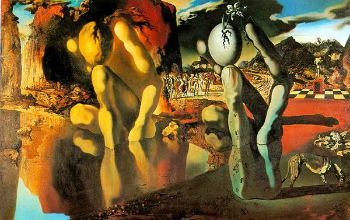
The Temptation of St. Anthony (1946)

Christ of St. John of the Cross (1951)

Galatea (1952)
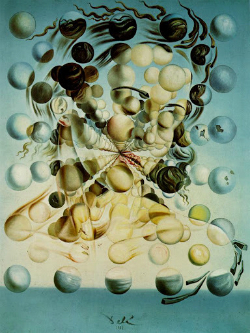
The Last Supper (1955)

Meditative Rose (1958)
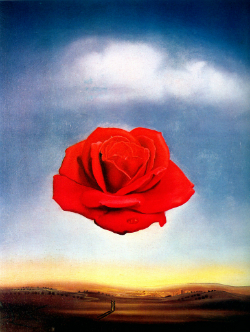
Hallucinogenic Toreador (1968)

Curiosities about Dalí
- At 37, Dalí wrote his memoirs in the book entitled "Salvador's Secret Life from there”.
- The surrealist films that participated alongside Luis Buñuel were: “an Andalusian Dog” (1929) and “The Golden Age” (1930).
- In cinema, he also starred alongside Alfred Hitchcock in the film “spellbound” (1945).
- In the animated short film, entitled “Destiny” (2003), released posthumously, Salvador Dalí collaborated with Walt Disney.
- Dalí was a close friend of the poets Rafael Alberti (1902-1999), Federico García Lorca (1898-1936) and the filmmaker Luis Buñuel (1900-1983).
- In 2017, almost 30 years after his death, an exhumation of Dalí's body was carried out. Interestingly it was discovered that the artist's mustache is still intact. The procedure was carried out to confirm the paternity of Pilar Abel, who claimed to be the painter's legitimate daughter.
Another Catalan artist, and also representative of surrealism, was Joan Miró. Read this artist's biography to complement your studies.



